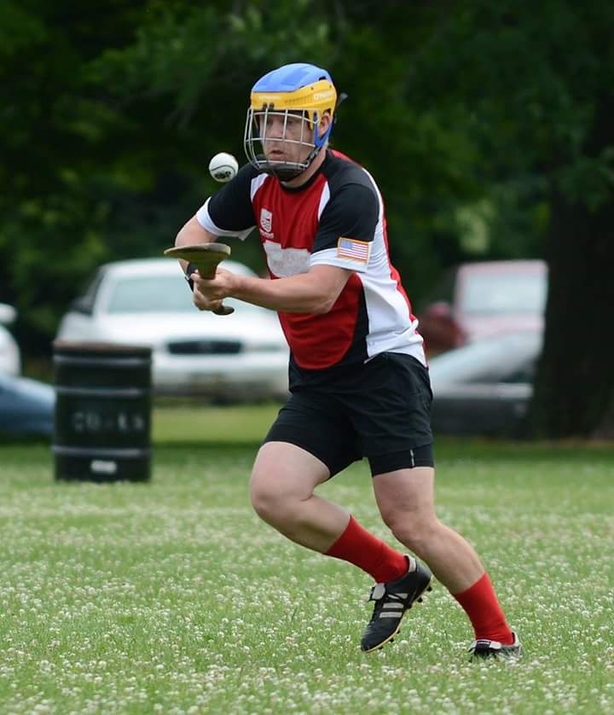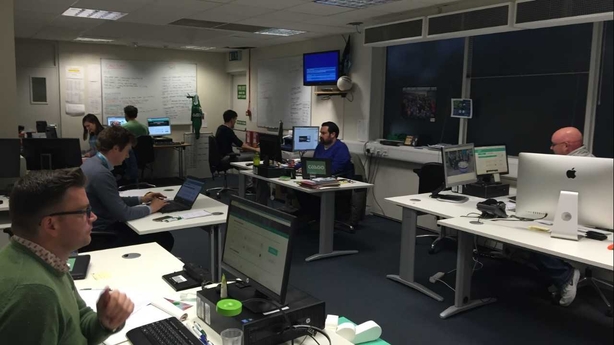There’ll be more than 82,000 people at Croke Park on Saturday.
If the viewing figures for the drawn All-Ireland football final are anything to go by, then close to a million people will tune in to RTÉ2 for the game.
And at shortly before 11am Milwaukee time, Limerick native Billy Finn will be settling down to watch the second instalment of Dublin v Mayo on GAAGO.
For years, Finn soldiered across the Gaelic playing fields of Munster and Europe, and now finds himself ensconced in Wisconsin, serving out his autumn years as a player with the 350-strong Milwaukee Hurling Club, the majority of whose members are US natives.
Before throw-in, Finn is going to watch Joe Brolly and co rant, rave and eulogise via the joint streaming service from RTÉ and the GAA, which brings viewers overseas television coverage of Gaelic games as broadcast in Ireland.
No ads, no pop-ups, no Russian commentary, it’s the full Irish. It will never be the same as back home, but for a couple of hours it’s a close second.
We need your consent to load this SoundCloud contentWe use SoundCloud to manage extra content that can set cookies on your device and collect data about your activity. Please review their details and accept them to load the content.Manage Preferences
“It makes you feel closer to home and closer to the games you grew up with,” says Finn, one of thousands of users of the service, which was launched three years ago.
“Expats want easy access to the coverage, where they can view the games and be viewed as an integral part of the whole GAA experience abroad.”
Finn’s story is common, too common, and to have a little bit of home comfort, a recognisable theme tune, a familiar voice, when you’re so far away from home is not to be underestimated.
That’s the message that struck GAA director-general Páraic Duffy when he and former president Liam O’Neill canvassed overseas opinion before the launch of GAAGO.
“The most painful separation is that caused by the parting from family and friends, but there is also the separation from one’s culture,” Duffy said in 2014, referring to those like Finn, who set up the Gothenburg GAA club and later served as a member of the European County Board.
“This issue of accessibility to our games on live television has been by far the single biggest issue raised with us when we spoke with our members outside Ireland.”

Acting on this feedback, the GAA teamed up with RTÉ to set up GAAGO, which is based in Donnybrook in Dublin.
In its first year in operation the service offered 39 games.
Such is the popularity that this season has seen 130 games and Sunday Game highlights programmes streamed, in partnership with RTÉ, TG4, Sky, Setanta and BBC Northern Ireland.
Now any game, from men’s football and hurling – senior, under-21, minor championship, club finals, Allianz League, and International Rules when they are on – that are broadcast on those channels, excluding Britain when rights-holders Sky show a game, can be accessed online anywhere in the world.
And while American and Australian cities have always been traditional expat hubs, the GAAGO subscription list tells its own tale in terms of the new wave of Irish emigration.
“We have been accessed in 186 countries,” says Dónal Moriarty, project leader for GAAGO.
“We have people watching in the polar station at the South Pole, South Sudan, Tanzania, Asia, tiny islands in the Caribbean, the South Pacific, the spread is massive.”

Moriarty’s job, primarily, is technical. It’s a stats, facts and figures brief, but there’s a human story behind every website hit.
“We understand that we are a link to home,” says the Kerry native.
“The very first issue that came to my desk when we started out was a problem in Kabul, Afghanistan.
“It was from a man, who was attached to an Irish university, working on a water project over there.
“It took about two minutes to solve his problem but we spent another half an hour on the phone. We were talking about home, we were talking about the match.
“There’s one customer who is in regular contact. He’s retired now and travels home to Ireland annually.
“We actually met up when he came home from Canada last year as we were in the same town.
“He’s one of a number of people who gets in touch with feedback, positive and negative.”
When users do encounter issues, with payment or streaming, a team of customer service agents are on hand to help via social media and email, and the feedback on the service as a whole has been overwhelmingly positive.
The GAA, seen in some quarters as a slow-moving beast, has been commended for their response to the calls for such a service, which is similar to the offerings of the MLB, NBA and NFL in America, and stands over its product.
“People didn’t want dodgy streams,” says Noel Quinn, the GAA’s media rights manager.
“This year’s subscription was €160 for a season pass, that’s just over a euro per event.
“It’s the future of sports broadcasting and we are in this for the long haul.”
Many Irish residents who don’t need GAAGO might only be aware of the service when our international stars mention it on social media.
Thanks god for @GAAGO pic.twitter.com/b3MvDAxvOJ
— Shane Lowry (@ShaneLowryGolf) September 18, 2016
Top golfer Shane Lowry tweeted this picture before the drawn game, while ex-Tipp minor Shane Long and other members of the Ireland soccer squad watched the All-Ireland hurling final via GAAGO during the trip to Serbia for the World Cup qualifier earlier this month.
Thanks to @GAAGO for providing @FAIreland the coverage to the Hurling Final! pic.twitter.com/UEgYfFoqkX
— Gerard Dunne (@gdunne16) September 4, 2016
But it is those like Finn, also a former Den Haag hurler, and his peers around the world that GAAGO was made for.
“It makes you acutely aware of how many miles you are from home and how unreachable attending a game seems,” he adds.
“It’s a great source of pride and warmth that I'm able to sit down with native Irish people and locals alike and watch games that 15 years ago would not have been viewable.”


